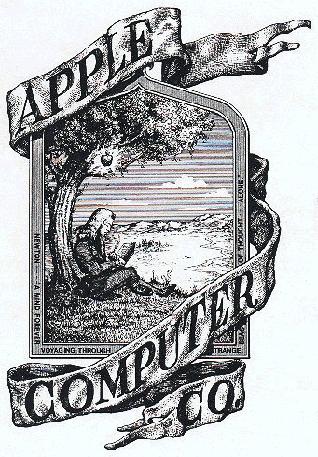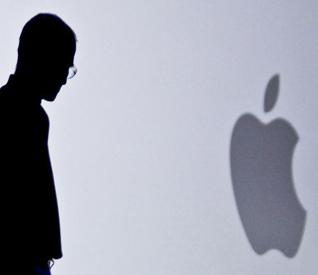Talking Stick
In the Beginning Was ... The Apple!
The Talking Stick Colloquium # 65
Convenor: RAVINDER SINGH
An 'apple' has come to signify more than just the Macintosh we bite into. It is also the laptop computer some of use to write columns like the Talking Stick. The Big Apple is also home to millions - as it was to me for many years. Had it not been for an apple, the theory of gravity might have eluded Newton. It was a cyanide-laced apple that killed Alan Turing, pioneer of the computing machine.
And lest we forget the Biblical story that tells us that the apple has been responsible for the downfall of humanity and the perennial curse of having to live an earthbound, creaturely existence, a condition where the ground has been “cursed for thy sake,” and where “in sorrow shall thou eat of it all the days of thy life.” Hence a whole swath of humanity - Christians, Jews, Muslims - believe that humankind is therefore destined to toil “by the sweat of thy brow.”
The apple, at least in the West, came to signify forbidden territory and fallen human nature.
That is, until Steve Jobs came around.
A recent Wall Street Journal article entitled, The Secular Prophet, by Andy Crouch, suggests that Jobs’ most singular mark of genius was his use of the apple as a corporate logo for his company.
Apple is perhaps the only company that does not have its name in its corporate logo. The first design in 1976 showed the classic image of Isaac Newton sitting under an apple tree. A quote from Wordsworth was inscribed at the bottom, “Newton ... a mind forever voyaging through strange seas of thought.”
Jobs discarded that image in favor of the now famous rainbow apple, so-called because it depicted a multicolored apple with a bite taken off its right side. The story goes that the rainbow apple was meant to symbolize the discovery of gravity (apple) and the separation of light (the colors) done by Isaac Newton.
By slapping a rainbow on the very “archetype of human fallenness and failure,” Crouch writes in his article, Jobs transformed a negative Christian religious symbol - the bitten fruit - into a “sign of promise and progress.”
The apple, as a result, has now come to symbolize technology and its promise to reverse the great curse of the Biblical Fall – to extend our reach and to “ease the burden of earthly existence.” It is the new secular gospel of hope and Steve Jobs was its high priest and chief evangelist.
The appeal of Apple products, which its followers call “instruments of the divine,” lies in the fact that its technology is mostly hidden and they are simple to use, combining “god-like effortlessness with blissful ignorance about the mechanisms that deliver our disburdened lives.”
Crouch argues that hope is something that humans cannot live without and there was not been much to be hopeful about, especially in the past decade. 9/11, George W. Bush, Iraq, Afghanistan and the economy have only brought one disappointment after another.
In such a world, Steve Jobs appeared on stage at product launches - time and again - with a miracle in his pocket.
Crouch's article is, at one level, an apologia and an advocacy for the Christian view. After all, he is editor of Christianity Today, an evangelical Christian paper, founded by Billy Graham. But more broadly, it also underscores the broader tussle between science and religion and between modernity and tradition.
It comes as no surprise, therefore, that Crouch questions Jobs’ Buddhist beliefs. He cites Jobs’ now famous Stanford commencement address in which Jobs speaks acceptingly about his own mortality, calling death a well-designed change agent and warning students against the trap of dogma.
Crouch asks the question whether the seduction of secular salvation will indeed save us or must we revert to traditional religion (in this case, Christianity).
LETS CONSIDER
Sikhi is not burdened by the myth of the fall of Adam and Eve. Is the Biblical story analogous to haumai - as the principle of creation? In the Judeo-Christian story, Adam hides from God because he has become conscious of his own nakedness. Is this self-consciousness the same as a sense of separate self?
What do you think about the Sikh view of effort (uddham) when compared to the Christian notion of striving and toil as a curse?
Crouch cites Martin Luther King’s famous speech about having looked over and seen the Promised Land (Hope) and asks, “Is it possible to live a good, full human life without that kind of hope? Steve Jobs would have said yes in a heartbeat.”
Implied in Crouch's question above is criticism of Steve Jobs’ belief that this life is all we have and we should make the most of it. Does this square with our belief?
Hope is an elemental emotion that we indeed cannot live without. We are a work- in-progress, always living in the yet to be. Is technology sufficient to fulfill our elemental emotions? Or do we always need the myth of a promised land?
November 2, 2011
Conversation about this article
1: Devinder Singh (India), November 03, 2011, 1:33 AM.
The Sikh view of overcoming haumai is of course through surrender to the divine will and the 'rainbow apple' of Steve Jobs best signifies that. In the biblical story, the apple signifies the knowledge of one's separateness or fall from the unity, and the climb back in the Sikh view is through uddham. If you surrender [to the divine] you have to give up effort, but that does not mean you have to abandon also all willed action. But if one wants to do something, it means personal effort, doesn't it? Having recourse to oneself alone which personal effort means - a kind of tension, at times very painful - you count only on yourself and you have the feeling that if you do not make an effort at every minute, all will be lost. This is personal effort. But uddham is something altogether different. It is the capacity to concentrate on everything one does, to do it as best as one can and not stop doing it until one receives a very precise intimation that it is finished. Take an artist who has in one way or another received an inspiration and decided to paint a picture. He knows very well that if he has no inspiration and is not sustained by forces other than his own, he will do nothing much. It will look more like a daub than a painting. He knows this. Then if he had the passive attitude, well, he would get out his palette, his colours, his brushes, his canvas and then sit down in front of them and say to the divine: "Now you are going to paint". But the divine does not do things that way. The painter himself must take up everything and arrange everything, concentrate on his subject, find the forms and the colours that will express it and put his whole will for a more and more perfect execution. His will must be there all the time. But he will keep the sense that he must be open to the inspiration, he will not forget that in spite of all his knowledge of technique, in spite of the care he takes to arrange, organize and prepare his colours and the forms of his design, in spite of all that, if he has no inspiration, it will be one picture among a million others and it will not be very interesting. He does not forget. He attempts, he tries to see, to feel what he wants his painting to express and in what way it should be expressed. He has his colours, he has his brushes, he has a model, he has made his sketch which he will enlarge and make into a picture, he calls his inspiration. There are even some who manage to have a clear, precise vision of what is to be done. But then, day after day, hour after hour, they have this will to work, to study, to do with care all that must be done until they reproduce as perfectly as they can the first inspiration ... That person has worked for the divine, in communion with Him, but not in a passive way, not with a passive surrender; it is with an active surrender, a dynamic will. The result generally is something very good. And that is the result of uddham.
2: Devinder Singh (India), November 03, 2011, 2:28 PM.
The promise of technology to reverse the great curse of the Biblical Fall 'to ease the burden of earthly existence' as Andy Crouch puts it, is however clearly misdirected in terms of the Sikh world-view. I doubt if Steve Jobs himself would have agreed with Crouch's assessment that it would become possible for him (Steve) to live a good, full human life without having looked over and seen the Promised Land. But as regards Steve's reported belief that this life is all we have, it is inconsistent with the Sikh view that we have all eternity - that there is a secret soul continuity of the individual that explains the theory of rebirth we subscribe to. While Crouch considers the 'death-as-change-agent' idea that is common to Buddhism and Sikhi and was accepted by Steve as dogma, he himself subscribes to that singular dogma of Christianity of a soul without a past but with a future, created by the birth of the body but indestructible by the death of the body. But that is an imagination unverified. It involves the difficulty of a creature beginning in time but enduring through all eternity, an immortal being dependent for its existence on an act of physical generation, yet itself always entirely unphysical and independent of the body that results from the generation.
3: Devinder Singh (India), November 05, 2011, 8:32 AM.
Our hopes are never too great for manifestation. We cannot conceive of anything that cannot be done. That is the basis of any technological advance. We are right to have hope; it is hope that builds happy futures. But the 'myth' of the promised land on the other hand has its origin in the striving for that which cannot be conceived of. It is myth because someone has had but faint glimmerings of it without seizing it in the conception, or having seized it in a dimension beyond the conceiving mind can convey only the myth. It seems therefore beyond hope. But that too is sought for the reason the myth exists. All adventurers are seekers of the myth.
4: Nirmal Singh Nilvi (Texas, U.S.A.), November 06, 2011, 8:16 PM.
Rainbow-like in narrative, the topic appears heavy on myths. We don't know when/ where/ how the beginning was, other than our perceptions. And on this rare life supporting planet, the human mind's ability to imagine/ conceive events/ topics abounds. Hence we can only conjecture the reality of the appearance of the apple trees and their capacity to bear apples sometime/ somewhere. Another related fact is the duality in human attributes to create myths as well as reality. Our views may vary, but in reality, the apple remains a juicy, nourishing, easy to eat, totally eatable, nature provided, life supporting, fruit. The role of the apple in this dialogue is mythical and conjectural at best. Its role in biblical terms is no more than food (source), one of life's critical survival needs. Any other utility is a cleverly invented need, presented in mythical proportions. Without hurting any religious sentiments, the entire biblical episode can be viewed as an intriguing plot in fiction or a movie. The story is powerfully displayed with apple (food), snake (danger), loss of heaven (comforting abode), by a male/female (attraction/seduction), caught in the act of satisfying their primal need; and forced to confront many miseries in a conflict inflicted planet they inherit as a punishment for their forbidden act (commitment). The myth is in the assumed circumstances, which are not much different from the mythical stories of Mahabharat/ Ramayan; other than the plots and the players. Connecting apple to science may be coincidental, but it is a testimonial of the human mind's craving for myths. If the apple can mentally induce a religious concept, Newton discovering gravity under an apple tree does not appear significant beyond adding myth to the incident. Steve Job's apple connection is no different. It is our need to lend mythical proportions to Steve Jobs, because of his success in his approach. Though we know that as a human, he had many divine doctrine-defying attributes of mercurial temperament, self center, my-way-or-highway; coupled with goodness of heart, respect for talent and an uncanny ability to attract certain intelligent minds. Not to be negative on Steve Jobs, his reference here illustrates more on the fickleness and duplicity of the human mind in managing success and failures in different ways. The approach here fails to highlight our challenge, which is not the apple but our emotions; naturally impregnated with the duality of good/bad, right/wrong, love/hate, create/destroy; and similar duality in the planet, where opposites attract (electricity/earth, two poles, etc). We add complications by using mythical vs reality based approaches. Our fickle mind wishes/ admires the harm inflicted by the duality on others, but prays for our own welfare/ escape. This irrational struggle has only intensified with time and awareness. We keep inventing mouse traps of groupies, cultures, dynasties, religions, nations, knowledge to harness this duality, but to no avail. It is like being a joker in a circus, where the expectation is praise/ adulation, regardless of the nature or quality of our performance. In the apple's glory, let us remember another timeless apple cliche - "an apple a day keeps the doctor away".
5: Devinder Singh (India), November 07, 2011, 1:31 AM.
What stories are to communities, myths are to individuals. Individuals find anchoring in myth. They identify with the whole or part of the life saga of a mythological story. How do these resonances work at the identity level to influence a person's behaviour? While the archetypes [original model or person for a particular trait] cloaked in the myths of Greek, Roman or Egyptian mythology have been explored by scholars abroad, we as a community have done very little work on how the archetypes found in our own mythology affect us. This is odd because most of us have grown up on these stories. They influence our ideals and values, they impact our attitudes and behaviour, they resonate with something deep within. In Greek mythology for instance the first labour Eurystheus recommended to the young Heracles was naturally the cleaning of the stable, a transparent symbol of the state into which an immortal soul is projected when it descends on earth and enters that animal skin which we call the human body. Jesus too was born into a stable. And in Genesis 3:21 we read: and the Elohim made animal skins for the man and the woman and clothed them before they were sent out of paradise and on to the earth. Thus man's awareness of the body as something foreign to his soul has been his first step towards immortality. This awareness also calls for a cleansing process, a purification. This cleaning of the stables, which we find also in Celtic and Nordic tales, is a remnant of a neolithic cattle-raising age. The king to whom the stable belonged was appropriately named Augeias, the bright ray, the shining one, and was said to be a son of Helios, the sun, a transparent symbol for our soul.






